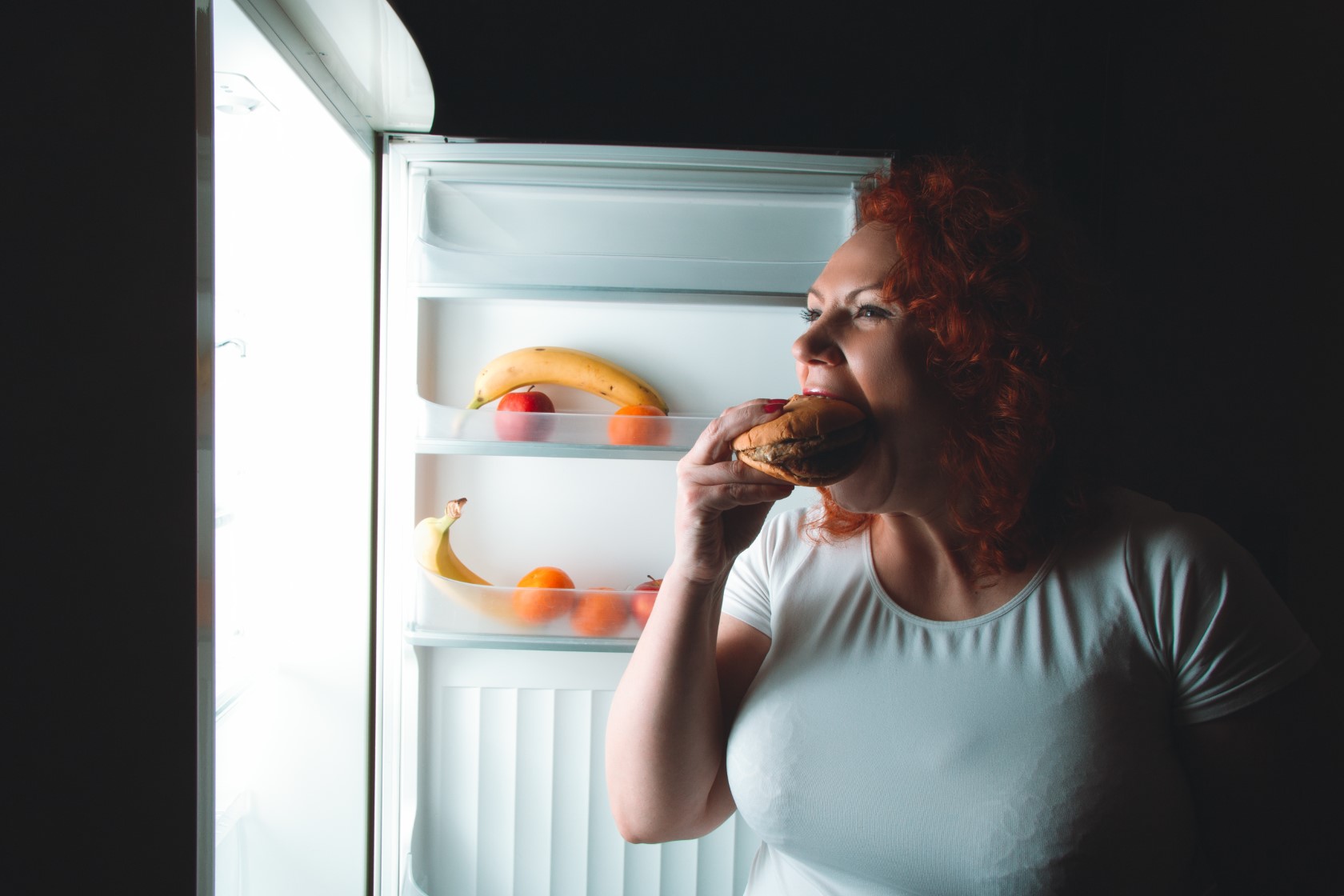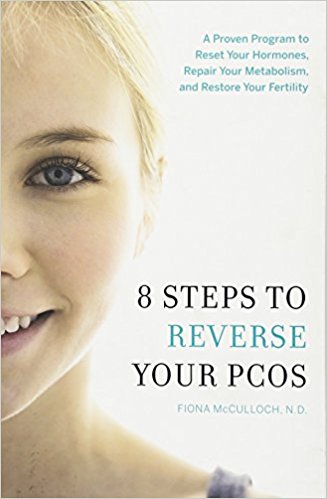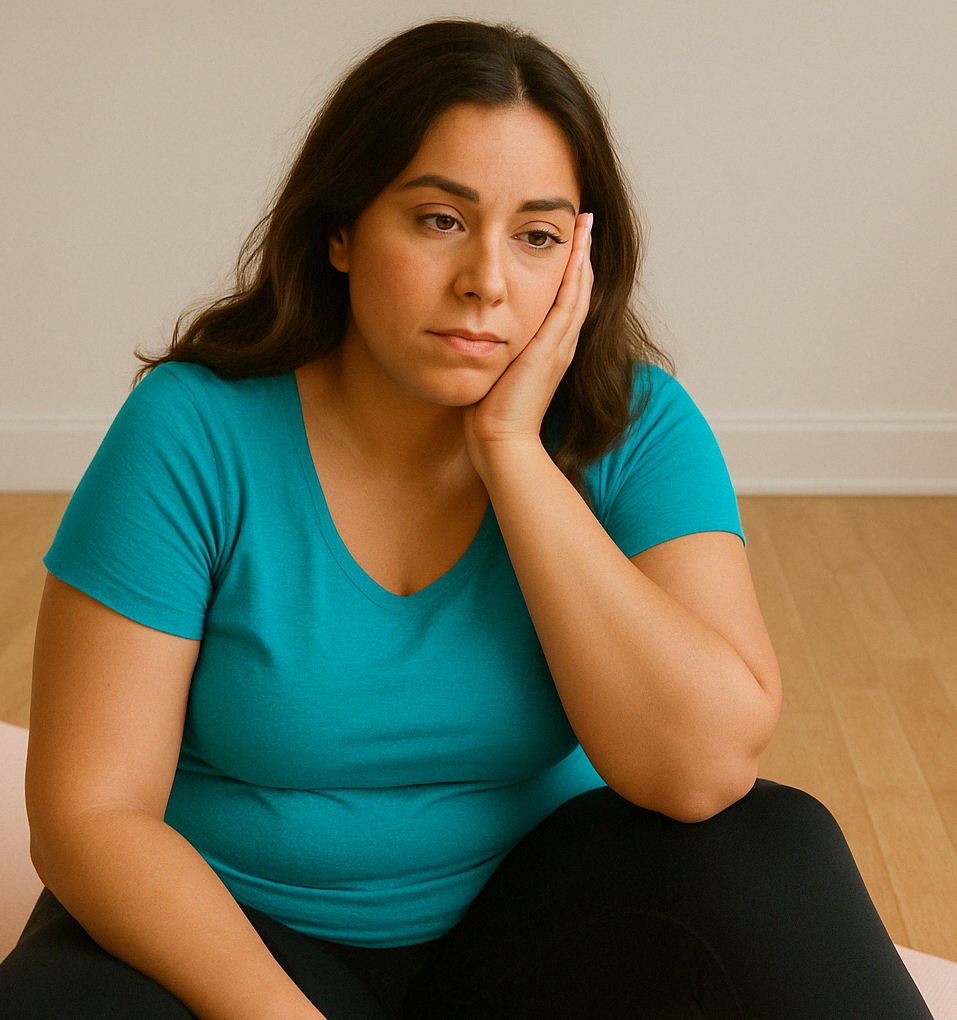I’m so excited that we have Dr. Fiona Muculloch, ND, author of 8 Steps to Reverse Your PCOSwith us to talk about natural treatments for PCOS hunger. Many of my coaching clients have told me that they feel hungry all of the time or hungry for more carbs shortly after eating a meal.
Dr. Fiona and I can relate! We both remember feeling the same way when our PCOS was at it’s worst. It was so annoying and sometimes downright stressful.
In our interview, Dr. Fiona explains how hormonal imbalances associated with PCOS can cause powerful appetites and crazy cravings. She also offers some natural treatments for PCOS hunger so you can take action today.
An Off-Balanced Hormone Cycle Can Make You Feel Hungry
Leptin resistance
Leptin is a hormone secreted by our fat cells. Our brains respond to leptin by telling our bodies that we are full and do not need more food. Both lean and heavy women with PCOS are prone to leptin resistance. This means that, compared to non-PCOS women, our brains do not receive the “I’m full, stop eating” signal from the same amount of leptin. As a result, we overeat, which aggravates insulin resistance.
Insulin resistance
Insulin resistance is a root cause of many PCOS symptoms like high-androgens and belly fat. It can also cause you to feel hungry even after eating a sufficient amount of food – a state called reactive hypoglycemia.
Genetic and environmental factors make women with PCOS prone to insulin resistance. One of insulin’s jobs is to take the glucose that comes from digested food and get it into your cells where it can be used for energy. However, the cells of insulin-resistant women will not respond to a normal amount of insulin, so the pancreas will produce higher amounts of insulin to control blood sugar.
Chronically high insulin levels contribute to reactive hypoglycemia. In reactive hypoglycemia, high insulin levels cause abrupt drops in blood sugar just 2 to 5 hours after a meal. That dip in blood sugar creates those nasty post-meal carb cravings many of us struggle with.
Natural Treatments for PCOS Hunger
During our interview, Dr. Fiona explains that nutrition is the best way to break the vicious cycle of off-balanced hormones and overeating. She recommends you start by eating meals that are designed to maximize satiety and improve insulin responses.
Ideally, you should have a palm-sized serving of lean protein, plenty of low starch veggies, healthy fats, and a healthy unrefined carb with each meal.
I offer more tips and recommendations on this in my free PCOS Plate infographic and recipes.
A New Tool for Improving Your PCOS Nutrition
If you already have the basics of good PCOS nutrition down and would like to optimize your diet to get even better results, you should look into using the Food Insulin Index (FID).
The FID measures how much insulin you will secrete in response to eating a certain food. This is especially helpful for women living with PCOS because our primary concern is controlling our insulin levels, not our blood sugar.
The FID will give you surprising new insights into how your food choices affect your insulin levels that go way beyond the glycemic index or carb counting. For example, particular low-carb foods cause greater insulin spikes then high crab foods: low-fat cottage cheese has an FID of 42, while a banana’s FID is 25.
Dr. Fiona’s excellent book 8 Steps to Reverse Your PCOS provides an in-depth explanation of the Food Insulin Index and how to use it to improve PCOS symptoms. I think it’s important to note that FID is not just a tool to help you lose weight, as Dr. Fiona explains in our interview lean women with PCOS can use FID to ease their symptoms as well.
You can get fascinating information on PCOS and PCOS research at Dr. Fiona’s blog. I highly recommend that you also take her online quiz to identify your unique type of PCOS.








